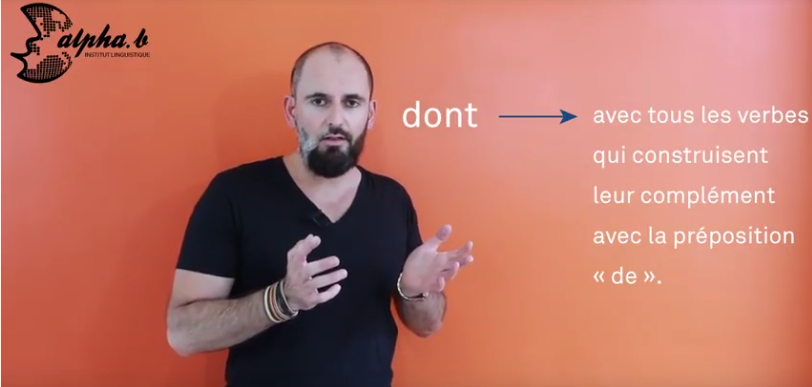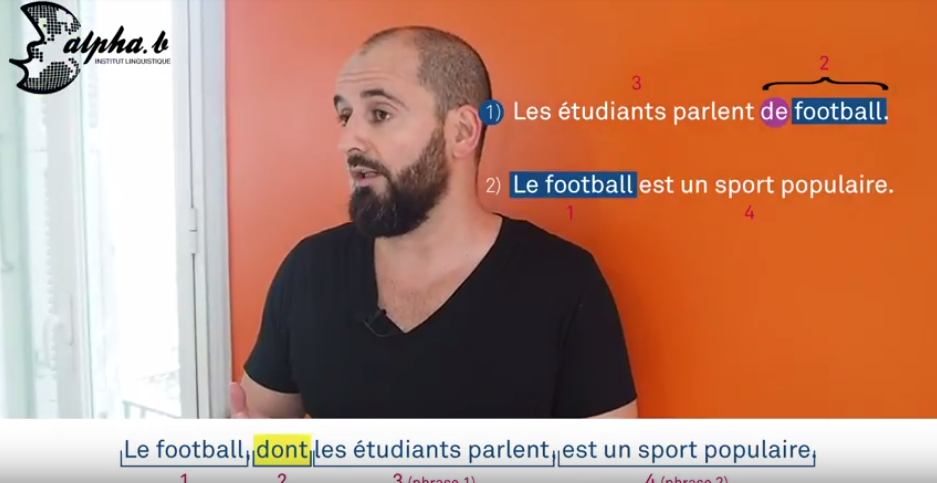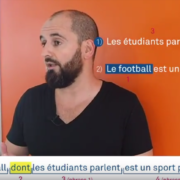How do we use the relative pronoun “Dont”?
This week, alpha.b French school in Nice is offering the third and final video on the use of pronouns in French, more specifically the relative pronoun “DONT”.
If you missed the lessons before this, you can find the first video by clicking here and the second video by clicking here.
The relative pronoun DONT
Why don’t students like this pronoun very much? Because it doesn’t really have an equivalent in other languages. It is a French speciality.
But in reality it is very simple to use.
A small reminder:
QUI replaces the subject of the verb
QUE replaces the direct object
OÙ replaces a time or a place
The relative pronoun DONT is used with all the verbs which are constructed with an object using the preposition “DE”.

Looking at a clear example:
-
Les étudiants parlent de football (The students talk about football)
-
Le football est un sport populaire (Football is a popular sport)
Which are the words that appear twice?
Le football.
We will replace this word in the first sentence.
What is the role of this word in the first sentence?
Is it the subject? No, the subject is “les étudiants”.
Is it the direct object? No.
Is it a time or a place? No, it’s not one of those either.
Look carefully at the word which is before the word “football”. It is the preposition “de”. Therefore we will use the relative pronoun “DONT”.
How do we form this sentence?
Le football, dont les étudiants parlent, est un sport populaire. (Football, which the students talk about, is a popular sport.)

We use the same logic to construct a sentence as with the other pronouns.
Which are the verbs which are constructed with DE? There are many, but we have put together a small selection of the most common for you.
When you use any of these verbs in a sentence and want to replace the DE and the object with a relative pronoun, you must use DONT.

For example:
ÊTRE + adjective + DE
-
Je suis fou de chocolat (I am crazy about chocolate)
-
Le chocolat coûte très cher (Chocolate is very expensive)
“Le chocolat, dont je suis fou, coûte très cher.” (Chocolate, which I am crazy about, is very expensive)
You can find our exercises on the relative pronoun DONT here: https://bit.ly/2MFlajd
You can post your answers in the comments.





Great explanation. Thank you.